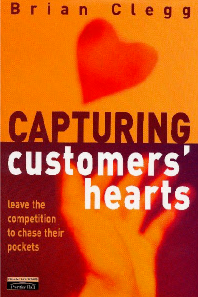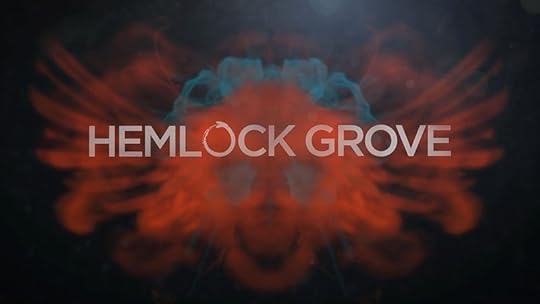Brian Clegg's Blog, page 119
May 16, 2013
History comes of age
 History is not unlike science, an observation made by Richard Carrier, the author of Proving History - and when you think about it, this idea makes a lot of sense. They both involve weighing up evidence, testing hypotheses and drawing up conclusions. In fact arguably cosmology is, in effect history rather than science, as it involves looking into the past and it is rarely possible to subject it to experiment or repeat it to see what happens.
History is not unlike science, an observation made by Richard Carrier, the author of Proving History - and when you think about it, this idea makes a lot of sense. They both involve weighing up evidence, testing hypotheses and drawing up conclusions. In fact arguably cosmology is, in effect history rather than science, as it involves looking into the past and it is rarely possible to subject it to experiment or repeat it to see what happens.That being the case, to do history properly, historians really ought to be using some of the tools available to scientists, but that they tend to ignore, in part because history has been around longer, but primarily, I suspect, because most historians have neither the training nor the inclination to dip their toes into mathematics. But the message of Proving History, written by a historian, is 'Come on in, guys, the water is lovely!' Carrier doesn't mention it, but there is a precedent here. Until recently biologists were basically natural historians. They merely observed and classified - they were doing Rutherford's 'stamp collecting' - they too avoided mathematics with fear and loathing. Now, though, some branches of biology make heavy use of maths, and have been transformed as a result. Biologists have learned to love numbers and a new breed of historians (it's probably too late for the old brigade) can and must too.
The tools Richard Carrier employs are logic and Bayes' Theorem. The logic is simple enough (though it is surprising how many examples Carrier gives where historians have drawn illogical conclusions). Bayes' Theorem is a little harder to get your head around. This statistical method is something I cover at some length in Dice World , because it is arguably one of the most powerful tools we have for predicting the future. What I didn't really full absorb is that it is also a great way of weighing up historical evidence and hypotheses. (It's odd, now I think of it, that I didn't do this, as the main example I give to demonstrate Bayes is deducing whether or not my dog is a golden retriever, which is, in effect, history, rather than future gazing.)
What Bayes' Theorem does is allow you to work out the probability of something being true with limited information, and modified by secondary evidence. As mathematics goes, it is actually very simple - a doddle compared with calculus, for instance - but for some reason, the way it is traditionally described makes it really hard to grasp, so one essential in selling the value of Bayes to historians is making your description simple. Unfortunately this is where Carrier falls down. If anything he makes Bayes' theorem sound more complicated than it is.
There are a couple of other problems with the book. I'm not quite sure what the target audience is, but the book is far to dry and dull to be anything but an academic text. This is a real shame, as the message is one that everyone should be interested in - here is a tool that could transform the way we assess our historical data, that could transform history. He perhaps should have had a co-author to make the text more approachable. It's not that the content is too complex, just that the way it is put across is often difficult to absorb.
The other problem is that Carrier is setting up this method primarily to be ready for his second book, in which he will dispute the historical reality of Jesus. This being the case, most of the examples in the book are from the Bible. I think this is a mistake, because this approach is so powerful it ought to have been set out in general historical terms in book 1 before he got onto his 'historicity of Jesus' theme in book 2. I think the subject matter will put some people off, who would otherwise benefit greatly from the underlying theme.
So if you are interested in the nature of history and how it can be improved, it is worth wading through the rhetoric to get to the juicy bits. It's a shame there aren't more examples, as the writing comes to life when dealing with specifics - it is only when it is being generic, which is much of the book, that it is hard going. If you are interested in Christian history, well and good - but if you aren't, again I would urge you not to be put off because the underlying approach applies to all of history and is far too good to waste. You can see the book at Amazon.com and Amazon.co.uk.
Published on May 16, 2013 01:36
May 15, 2013
Is no stats worse than bad stats?
There's nothing easier than attacking the media for misusing statistics - but I am puzzled at the moment by a major story in which the news media are avoiding statistics altogether. This may be an even worse reality, because the misuse of statistics is usually accidental, where this suppression may be deliberate.
Yesterday's news was full of the outcome of the Oxford trial where seven men were found guilty of grooming and abusing young girls in a terrible fashion. It is notable that the BBC report says nothing about whether the culture of the seven might have influenced this behaviour, not even in a piece headlined 'Who were the abusers?' Last night, though, Channel 4 News bit the bullet that most are dancing around and asked if race, religion or culture could have had an influence. Here Jon Snow asks the Deputy Children's Commissioner the straight question (and this is why I love Channel 4 News) 'Is it race?' Here's the interview:
She responds equally bluntly 'No.' She tells us this is taking place across all parts of our community and in all ethnic groups. The suggestion is that the reason we only see primarily muslim offenders, mostly with Pakistan as a place of origin, is down to the way the media reports the stories, and the way cases have been brought to trial. There was, for example, she tells us, the Derby group, which was primarily white (I wanted to put a link to that, but the only Derby trial I can find details of is clearly not the one she is referring to.) That's useful. But it isn't enough. The question that needs to be asked, but wasn't, is what the statistics are.
The UK population is currently around 62 million of whom maybe 20 million fit into the broad sex/age bracket giving them the potential to commit these crimes. The equivalent numbers for UK muslims is around 2.7 million, giving around 900,000 potential perpetrators, and for those of Pakistani origin 1.2 million in total with maybe 400,000 in the right bracket.
Given these figures, if there is no influence from these factors, we would expect around 4.5% of perpetrators to be muslims and around 2% to be of Pakistani ethnicity. If the actual percentages are significantly more than these, and with the proviso that to do the stats properly we would have to look at other factors to make sure there is not another hidden dominant influence that needs to be controlled for, we can reasonably draw the conclusion that there is influence from race, religion or culture. If, on the other hand, these percentages are roughly comparable with the distribution of actual offenders, there should be an outcry because the media and the police/courts are grossly distorting the facts.
Let's be clear - I don't have these statistics, so I can't say which is the case. But either way this would be an important fact that needed acting upon. By not giving any statistics, we are being deprived of the key element of this news story. Statistics matter.
Yesterday's news was full of the outcome of the Oxford trial where seven men were found guilty of grooming and abusing young girls in a terrible fashion. It is notable that the BBC report says nothing about whether the culture of the seven might have influenced this behaviour, not even in a piece headlined 'Who were the abusers?' Last night, though, Channel 4 News bit the bullet that most are dancing around and asked if race, religion or culture could have had an influence. Here Jon Snow asks the Deputy Children's Commissioner the straight question (and this is why I love Channel 4 News) 'Is it race?' Here's the interview:
She responds equally bluntly 'No.' She tells us this is taking place across all parts of our community and in all ethnic groups. The suggestion is that the reason we only see primarily muslim offenders, mostly with Pakistan as a place of origin, is down to the way the media reports the stories, and the way cases have been brought to trial. There was, for example, she tells us, the Derby group, which was primarily white (I wanted to put a link to that, but the only Derby trial I can find details of is clearly not the one she is referring to.) That's useful. But it isn't enough. The question that needs to be asked, but wasn't, is what the statistics are.
The UK population is currently around 62 million of whom maybe 20 million fit into the broad sex/age bracket giving them the potential to commit these crimes. The equivalent numbers for UK muslims is around 2.7 million, giving around 900,000 potential perpetrators, and for those of Pakistani origin 1.2 million in total with maybe 400,000 in the right bracket.
Given these figures, if there is no influence from these factors, we would expect around 4.5% of perpetrators to be muslims and around 2% to be of Pakistani ethnicity. If the actual percentages are significantly more than these, and with the proviso that to do the stats properly we would have to look at other factors to make sure there is not another hidden dominant influence that needs to be controlled for, we can reasonably draw the conclusion that there is influence from race, religion or culture. If, on the other hand, these percentages are roughly comparable with the distribution of actual offenders, there should be an outcry because the media and the police/courts are grossly distorting the facts.
Let's be clear - I don't have these statistics, so I can't say which is the case. But either way this would be an important fact that needed acting upon. By not giving any statistics, we are being deprived of the key element of this news story. Statistics matter.
Published on May 15, 2013 00:40
May 14, 2013
The Google Glass is half full
 The world is traditionally divided into those who see a glass half full and those who think it's half empty. The optimists and the pessimists. Those who see opportunities and those who see problems. You get the picture. And I think nothing brings this out more than the widely talked about Google Glass product, in development at the moment.
The world is traditionally divided into those who see a glass half full and those who think it's half empty. The optimists and the pessimists. Those who see opportunities and those who see problems. You get the picture. And I think nothing brings this out more than the widely talked about Google Glass product, in development at the moment.In case you have just emerged from a year in a cave, this is a wearable computer interface that is like (and can be incorporated into) a pair of glasses and features a display, camera, speaker and microphone.
The Glass half full picture is that this is the sensible and wonderful extension of what you can do with a mobile phone. At the moment, when I'm walking about I will quite often ask Siri something on my phone (say to look something up, add something to my diary or reminders, or send a text), or will use maps on the phone to guide myself while walking. Similarly if I want to snap a photo or take some video I just whip out my phone and I'm doing it in seconds. Glass lets you do all this and more, hands free without looking down at the phone. Want to take a picture? Ask it and it's done in a second. Need walking directions? You can see them as you walk. Want to check your diary? No need to drag out the phone and stare at it, just carry on. It sounds life transforming and life affirming.
The Glass half empty picture is that this is the monster Google getting its tentacles into even more of your life - and the life of those around you. As you use it you could potentially constantly be providing Google with information and even images if the camera is live. And it's rude. When someone thinks you are listening to them, you may be consuming information on Glass. It is obtrusive, Big Brotherish and a nightmare. Some locations are already banning the devices.
When it comes to technology I'm largely glass half full - and this extends to Glass. I really want one, though with a number of provisos. It would need to be integrated with prescription glasses, something promised fairly quickly, but which I suspect will only be available in the UK after quite a while. It would need to be affordable - there is no way I would pay over £200 for this, as will probably be the initial price. They would need to work where I am most of the time - I don't know enough about the way they access the internet to know if this applies. And ideally they need to integrate well with my Apple technology, which given this is from the House of Android somehow seems unlikely. But that apart I would love to be able to do all that stuff.
Am I not worried about privacy? No, not really. I happily use mobile devices without panicking about losing my privacy now and I will continue to do so.
Google Glass is half full. And I can't wait to try it. But, strangely, Google is yet to send me a free headset (hint), so I thought I'd do a DIY experiment and see if I can learn anything. I stuck my phone in my top pocket with the camera on as I exited my local supermarket and this was the result:
I think there are some interesting lessons here, both for those who think Glass will give them excellent video and those who think it will be a snooper's charter:
Uncontrolled video is rather bumpy. Okay Glass will 'see what you see' - but bear in mind the brain is very good at editing out jerks and shaking. And this is after YouTube kindly offered to stabilize it for me.There will be a lot of close-ups of things that aren't interesting. If your head is there, that's what Glass will see.You will video/photo people without them realizing you are doing so. A bit worrying - but then, as I just demonstrated you can also do this with a mobile phone without anyone realizing.There's a heck of a lot of ambient noise in the world. I wasn't aware of the child wailing in the supermarket.Videos of your life are boring. This was 30 seconds. Imagine hours of it.Of course, I'm not suggesting Glass wearers will constantly video everything - apart from anything else, it would drain the battery quickly. If I had Glass probably 95% of my use would be information consumption, not capture. But it was still an interesting exercise.
Published on May 14, 2013 00:37
May 12, 2013
It's not logical, captain!
 I saw the new Star Trek movie at the weekend. I really like the new version of the franchise - as a fan of both the original series and STTNG, I think they have really done well in capturing the feel of Star Trek. And, boy, did they load in the references in this one, from a tribble to the lovingly crafted inversion of Star Trek II.
I saw the new Star Trek movie at the weekend. I really like the new version of the franchise - as a fan of both the original series and STTNG, I think they have really done well in capturing the feel of Star Trek. And, boy, did they load in the references in this one, from a tribble to the lovingly crafted inversion of Star Trek II.However, most Star Trek movies have had fatal plot flaws. One of the STTNG movies, for instance, had the saucer section crash landing on a planet - no power, yet somehow a) it stayed in one piece and b) the crew weren't killed. They were however, as usual, thrown all over the bridge - so nice to see in the new movie the deployment of seat belts. Clunk, click, Spock! In Into Darkness there was unfortunately also a significant plot point that just didn't make sense.
[SPOILER ALERT, but I won't give too much away]
Towards the end, our heroes are desperate to get hold of Benedict Cumberbatch's character (a great, surprise reveal, by the way), as they need his blood to save one of the crew. Spock and Uhura risk their lives for this. Yet on the Enterprise they have 72 other people who all have the same blood characteristics, all handily frozen and accessible. They even defrost one so they can use his cryo tube. Why doesn't anyone say 'Let's use this guy's blood instead'? Duh.
It's fine to build drama, but not by using totally stupid reasoning. Not with Spock on board.
Image from IMDB
Published on May 12, 2013 23:59
May 10, 2013
Truth makes great PR
Over the years there have been a number of those irritating photo messages that get repeatedly shared on Facebook showing just how different the hamburgers McDonalds shows in its advertising look from the actual burger bought in a store. In the comparison photos the one in the advert is plump with all sorts of good things visible - the real one is saggy and usually just displays a bit of meat and an ooze of cheese.
Generally speaking, the McDonalds response to this has been to ignore it - the usual corporate approach to bad publicity, but some while ago the Canadian branch of McD's decided to address the matter face on. I think this was a bold and actually very sensible thing to do from a PR standpoint. Once you get over the fact that the burger in the photo is not made in a restaurant, but in a studio (using the standard ingredients) the difference in appearance does make a kind of sense. Yes, the bits and pieces are carefully arranged to stick out of the bun, which is plumper than the real one because it hasn't been steamed in the container. But they are the usual bits and pieces.
Frankly, to moan about deception misses the nature of advertising. Arguably this is less deception than the car ad that implies that if you drive their car your kids will sit in the back enjoying the ride and amazed by the design, as opposed to attempting to skewer each other with pens, spilling drinks on your seats and screaming. You might as well moan that the actors in adverts are wearing makeup. At least the hamburger in the video didn't suffer than indignity.
See what you think:
Generally speaking, the McDonalds response to this has been to ignore it - the usual corporate approach to bad publicity, but some while ago the Canadian branch of McD's decided to address the matter face on. I think this was a bold and actually very sensible thing to do from a PR standpoint. Once you get over the fact that the burger in the photo is not made in a restaurant, but in a studio (using the standard ingredients) the difference in appearance does make a kind of sense. Yes, the bits and pieces are carefully arranged to stick out of the bun, which is plumper than the real one because it hasn't been steamed in the container. But they are the usual bits and pieces.
Frankly, to moan about deception misses the nature of advertising. Arguably this is less deception than the car ad that implies that if you drive their car your kids will sit in the back enjoying the ride and amazed by the design, as opposed to attempting to skewer each other with pens, spilling drinks on your seats and screaming. You might as well moan that the actors in adverts are wearing makeup. At least the hamburger in the video didn't suffer than indignity.
See what you think:
Published on May 10, 2013 00:39
May 9, 2013
Do you supper?
Last week I gave a talk at the University of Bath and afterwards was invited to supper. I don't know about you, but generally speaking, I don't do supper. The word is not part of my everyday vocabulary.
Of course, being a northerner*, when I was young we used to have dinner as a midday meal and tea in the early evening - but these days it's more likely to be either lunch and tea or lunch and dinner. (The distinction between tea and dinner being primarily timing and/or where you have it. Tea is earlier than dinner, and you have tea in a tea room/the Ritz, but if you go out to a restaurant it is dinner.)
So what is this 'supper' thing? I think the origins were when some households had a quite substantial afternoon tea - 'high tea' - sandwiches and cakes, for instance - and then topped up in the evening with a light meal, perhaps a bowl of soup. But then we come across something like Colley's Supper Rooms, where 'Supper' appears to be a seven course meal. (Or rather used to be as Colley's seems to have gone bust in its original form.)
I am at a loss. Supper just doesn't work for me as a concept. (I don't like the word, either - it is too close to suppurate.) It's dining confusion. Or should that be supping confusion?
* Someone (Amanda) asked recently on Facebook whether they were still a Northerner after living down south longer than they had up north. Simple answer, yes.
Of course, being a northerner*, when I was young we used to have dinner as a midday meal and tea in the early evening - but these days it's more likely to be either lunch and tea or lunch and dinner. (The distinction between tea and dinner being primarily timing and/or where you have it. Tea is earlier than dinner, and you have tea in a tea room/the Ritz, but if you go out to a restaurant it is dinner.)
So what is this 'supper' thing? I think the origins were when some households had a quite substantial afternoon tea - 'high tea' - sandwiches and cakes, for instance - and then topped up in the evening with a light meal, perhaps a bowl of soup. But then we come across something like Colley's Supper Rooms, where 'Supper' appears to be a seven course meal. (Or rather used to be as Colley's seems to have gone bust in its original form.)
I am at a loss. Supper just doesn't work for me as a concept. (I don't like the word, either - it is too close to suppurate.) It's dining confusion. Or should that be supping confusion?
* Someone (Amanda) asked recently on Facebook whether they were still a Northerner after living down south longer than they had up north. Simple answer, yes.
Published on May 09, 2013 01:21
May 8, 2013
Great customer service requires great recovery
 In my book Capturing Customers' Hearts I emphasize how important recovery is. It's not good enough to give excellent day-to-day customer service, when things go wrong (and sometimes they will) you have to be able to recover from the problem in a way that leaves the customer thinking you are brilliant. And it's entirely possible to do so if you go about it the right way.
In my book Capturing Customers' Hearts I emphasize how important recovery is. It's not good enough to give excellent day-to-day customer service, when things go wrong (and sometimes they will) you have to be able to recover from the problem in a way that leaves the customer thinking you are brilliant. And it's entirely possible to do so if you go about it the right way.I've just had a great example of how not to do it at Asda. Asda (the UK Walmart) is generally on top of its day-to-day service standards. Its staff are amongst the most helpful in any UK supermarket. However they clearly haven't been trained to cope with things going wrong and to make the most of the situation. This became clear when at approximately 13.22 yesterday their EPOS system went down in our local superstore. Every single till, human-operated and automatic, stopped working.
First failing: it took too long to get announcements out about what was happening. And they ought to have got an extra person on each till lane immediately to manage the irritated queues, preferably with a nice tin of sweets.
Second failing: the system came back pretty quickly on the operative tills, but the self-checkouts got confused. In the lane of six where I was trying to check out, three of the tills (including mine) decided to reboot, two froze just after apparently taking payment but without issuing a receipt or confirmation of payment and one continued operating normally. Here there were multiple failings:
The staff member in charge of the tills spent most of the down time on the phone, asking what to do. It was fine for her to do a get a quick 'get a manager here now!' call, but her focus should have been on the customers.The customers at the two tills that had apparently taken payment should have been given the option to leave with their goods, if they didn't mind not having a receipt. Okay, the store might have taken a £10 loss, but it would have been worth it a) to please 2 customers and b) to reduce the number of irate people in a concentrated space.The three tills that were rebooting were going to take 10 minutes or so to become functional again. This should have been made clear, but wasn't.The till that was still working was initially ignored. It was only because I said 'Can I try that one, it seems to be working?' (and it was) that the staff member started routing people through it.The people queuing to enter the lane were being ignored. They should have been warned that only one till might be operating for some time.I would also have offered people a voucher (£1 would be enough) as compensation for being messed around. Easily done, cheap, helps ensure people come back.This is top of the head stuff. There's more they could have done. But the main problem is that the staff had no training in what to do if things did go wrong, nor any discretion to sort the problem out. Without those two keys there is no good recovery, and customer service goes down the plughole.
Published on May 08, 2013 00:31
May 7, 2013
How not to write a TV series
 I have just finished watching the new Netflix originated series, Hemlock Grove. As I had really enjoyed their previous (and first) attempt at a home-grown series, House of Cards, I was looking forward to HG. Admittedly it is a horror show, and I am rather averse to gross horror (though clever, funny horror makes Buffy my favourite TV show ever), but I was willing to make allowances.
I have just finished watching the new Netflix originated series, Hemlock Grove. As I had really enjoyed their previous (and first) attempt at a home-grown series, House of Cards, I was looking forward to HG. Admittedly it is a horror show, and I am rather averse to gross horror (though clever, funny horror makes Buffy my favourite TV show ever), but I was willing to make allowances.By about half way through the 13 episodes I thought that watching was a good move. The show was genuinely mystifying, very atmospheric and though leisurely in the extreme, there was enough complexity in the plot to keep the viewer interested - plus some genuinely intriguing characters. Ok, some aspects (Shelley's appearance, particularly) were trying too hard to be weird, but that was forgivable.
But then I watched the last two episodes and it all fell apart. Entirely. [ALERT - Spoilers coming.]
There was a lot left hanging for the next season. Well you expect that from a US series - they love their cliffhangers. That wasn't the end of the world. But first there was a senseless sacrifice, when it would have been perfectly possible to destroy the main killer of the series without any loss on the side of the good guys. Given the choice, which would you go for? Kill a werewolf before it turned (as it was actually asking you to do), or wait and let it bite your face off? So you could turn into a werewolf. And then have it kill you again. Limited on the logic front, to say the least.
And there was a sudden and senseless sequence of killings of most of the strong female characters. It isn't done all at once, so the sexism was not totally obvious, but women were dying left, right and centre. This was confusing, ruined any feeling you might have for the show and really left the viewer floundering. Add to that a decidedly unpleasant move from one of the (admittedly fairly weird) male sort-of-heroes and the revelation that the thing that has been striking terror throughout, carefully concealed to build its importance, is just an update of a Bodysnatchers pod person and it was a huge anti-climax.
The TV series is based on a book, and it's possible the book originated many of these problems. But as it was, what happened was there was great mystery and atmosphere built up... that all collapsed when the reveal showed the whole basis to be a sham. Bad choice of story, I'm afraid - and I'm not sure I will be bothered with season 2.
Image from Wikipedia
Published on May 07, 2013 00:16
May 3, 2013
And the prize for head in the sand goes to...
 This won't replace an iPadThe whole history of computing is littered with people making wildly inaccurate predictions. Famously Thomas J. Watson, Mr Big in the early days of IBM, believed that there was only a worldwide market for about five electronic computers. If we ignore things like washing machines, but include smartphones, games consoles and PVRs, we must have around three times that in our house alone.
This won't replace an iPadThe whole history of computing is littered with people making wildly inaccurate predictions. Famously Thomas J. Watson, Mr Big in the early days of IBM, believed that there was only a worldwide market for about five electronic computers. If we ignore things like washing machines, but include smartphones, games consoles and PVRs, we must have around three times that in our house alone.Even so, you would think by now that some computing bigwigs would learn their lesson. But no. The head honcho of struggling mobile manufacturer BlackBerry, Thorsten Heins has announced that tablet computers - iPads and Kindle Fires and all those other Android equivalents - will be dead within five years. A flash in the pan. A short term craze that will go the way of hula hoops (the toy, not the crisp) and clackers.
Apparently Thorsten said 'In five years, I don't think there'll be a reason to have a tablet anymore... Maybe a big screen in your workplace, but not a tablet as such. Tablets themselves are not a good business model.'
No, Mr Thorsten, BlackBerry tablets - the much derided 'Playbooks' - were not a good business model, because they weren't very good tablets. But to expand your experience to the whole market is ridiculous. Thorsten sees mobiles like their latest, the BlackBerry Z10 (which is basically BlackBerry just about catching up with Apple and Samsung) replacing tablets. I'm sorry, they won't.
The fact is I have a very nice smartphone, and I can read books and PDFs on it, or do spreadsheets or Word documents - and I do when all else fails. But I don't most of the time, because it's so much more practical and productive on my iPad. I can see it's quite possible that laptops will only still exist for power users as they are replaced by tablets for most people - but not tablets replaced by phones. I have now abandoned laptops and only use my iPad for mobile computing - and I know increasing numbers of people who do this.
Tablets are taking the domestic market by storm, but inevitably they are slower to penetrate in business, BlackBerry's heartland, because business IT departments are (often sensibly) very conservative, but they will come. Of course there will always be power business users who do serious graphics, or write all day who will want a 'real' computer, but I can see an awful lot of business computing eventually done on next generation tablets.
I don't know if there is a head-in-the-sand award for business, but if there is, I know who should get it.
Published on May 03, 2013 00:19
May 2, 2013
An elegant folly
 There was a time when any rich landowner worth his salt would build himself a folly, a bit of architectural madness designed to improve the view from his house or garden. Some of them are absolutely stunning - a fake castle built on the hills above or a bizarre three-sided tower looming at the edge of the grounds. The are all about appearance. They don't do anything apart from sit there and look wonderful. But this doesn't detract from their value.
There was a time when any rich landowner worth his salt would build himself a folly, a bit of architectural madness designed to improve the view from his house or garden. Some of them are absolutely stunning - a fake castle built on the hills above or a bizarre three-sided tower looming at the edge of the grounds. The are all about appearance. They don't do anything apart from sit there and look wonderful. But this doesn't detract from their value.I would say that a book I've been sent for review recently is the literary equivalent of one of those follies. It is magnificent, if practically hollow. The Resurrectionist is the first book by E. B. Hudspeth. It is a book of two parts. The first is the fictional biography of a late Victorian medical man, who starts as someone with a brilliant reputation as a surgeon helping to repair deformities. But over time he comes to believe that birth defects hark back to earlier forms of life now lost, forms that we retain in folk memories as mythical beasts like centaurs, harpies and satyrs. As this idea takes hold we see the surgeon, Spencer Black, descending to become a sideshow artist in a carnival, displaying first preserved freaks of nature (common enough in sideshows of the time), then creating his own fake corpses of hybrid creatures before finally plunging into the abyss of attempting to create these creatures alive. It is a dark and often unpleasant history.
The second part of the book consists of multiple anatomical drawings of these 'real' mythical beasts, with detailed skeletons, partially muscled cutaways and complete images of what they may have looked like when they roamed the Earth. I was a little disappointed there wasn't more narrative here. The problem, for instance, with flying horses and people is that they have far too much weight for the size of wing/musculature to ever lift - but there was no explanation of how this was got around.
However, there is no doubt that the drawings are beautifully done, with a totally straight face on the part of the author. It is truly a magnificent folly - but for me it doesn't quite work. The problem is that, unless you are into anatomy, once you've seen one detailed drawing of a skeleton, you've seen them all. So the second half of the book is worth little more than a quick flick through.
As for the first half, it is very neatly done with faked up posters and newspaper cuttings and sketches - but the problem here is that is almost too well done. What we have is a sober short biography of a Victorian character - but because this is how it is presented it has none of the dramatic drive of a good bizarre novel. I had to force myself not to skip some bits, because it was just a bit, well, worthy. Of course it isn't really - like the folly it is a cunning, intricate fake - but the trouble is it is a cunning intricate fake of something which is, despite the bizarre subject, rather dull.
Overall then, a brilliant idea, superbly executed, it just doesn't quite work as a piece of fiction for me, and I'm afraid the anatomical section, while briefly entertaining, did not hold my attention.
Find out more at Amazon.co.uk and Amazon.com.
Published on May 02, 2013 01:30



